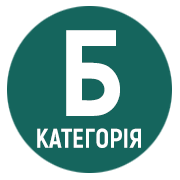COGNITIVE AND SEMANTIC FEATURES OF NEOPHRASEOLOGY OF THE ‘ENEMY LOSSES’ PHRASEOSEMANTIC FIELD
DOI:
https://doi.org/10.32782/2412-933X/2025-XXIII-19Keywords:
concept, phraseosemantic field, enemy losses, neophrasemes, negative connotationsAbstract
During the Russian-Ukrainian war, especially over the past three years, the Ukrainian phraseological fund has been intensively replenished and continues to be replenished with neophrasemes related to the war topic. A certain part of them was accepted by society and has come into active use, while the other part has remained for occasional use. The purpose of the article is to determine the conceptual and semantic features of the realization of the ‘enemy losses’ phraseosemantic field by means of neophrasemics, which has not yet been the subject of in-depth study. This phraseosemantic field is singled out within the microconcept of ‘losses’, which belongs to the concept of ‘war’. The field is divided into two groups: ‘to destroy (exterminate)’ and “to be destroyed”. The neophrasemes denoting losses of enemy personnel and equipment were taken into account. The phraseological verbalisers of the concepts ‘to destroy (exterminate)’ and ‘to be destroyed’ practically do not contain components directly related to the conventional linguistic agents of the conceptual content of war and inevitable losses. This applies to the metaphorical neophrasemics analysed in this paper, which figuratively describes these phenomena. However, a small number of phraseological units with an analytical structure, stock phrases and paraphrases may contain traditional lexical verbalisers of the ‘losses’ micro-concept. Sometimes, understanding the meaning of a particular neophraseme requires knowledge of the extralinguistic context. Various events related to military operations, special holidays and the peculiarities of Ukrainians’ perception and interpretation of enemy losses have served as sources for neophrasemes’ formation. With the help of neophrasemes, Ukrainians express a dismissive attitude towards the aggressor and ridicule its propaganda, some elements of which are reflected in the newly created phraseology. Accordingly, the enemy and his losses are treated ironically in such units, which allows us to assert that all neophrasemes have negative connotations. Their expressive and evaluative, emotional and stylistic semes brightly colour and express speech.
References
Гарбера І. Концепт людина в українській літературній фразеології: соматичний код культури. Науковий вісник Ужгородського університету. Серія «Філологія». 2020. Вип. 1 (43). С. 80–85.
Гладченко А., Комарова О. Неологізація лексики у період російсько-української війни. Вчені записки Таврійського національного університету імені В.І. Вернадського. Серія «Філологія. Журналістика». 2023. № 1 (1). Том 34 (73). С. 13–17.
Гриценко С. Мовні інновації російсько-української війни 2022 року. Вісник Київського національного університету імені Тараса Шевченка. Серія «Літературознавство. Мовознавство. Фольклористика». 2022. № 2 (32). С. 9–13.
Івасишина Т., Комарова О. Фразеологізми як репрезентанти воєнного дискурсу. Наукові праці Міжрегіональної академії управління персоналом. Серія «Філологія». 2023. Вип. 1 (6). С. 30–35.
Мельник С., Назаренко О., Сікорська В. Мовна репрезентація концепту «війна» в сучасному українському медіадискурсі. Philological education and science: transformation and modern development vectors : scientific monograph. Riga : “Baltija Publishing”, 2023. С. 446–467. URL: http://baltijapublishing.lv/omp/index.php/bp/catalog/download/297/8542/17835-1?inline=1 (дата звернення: 15.11.2024).
Петрів О. Лексика і фразеологія російсько-української війни. Філологічні дискусії: теоретико- методологічні та прикладні аспекти : матеріали Всеукраїнської науково-практичної конференції м. Івано-Франківськ, 24.11.2022 р. Івано-Франківськ. 2022. С. 34–38.
Хороз Н. Українські новотвори періоду російсько-української війни. Сучасний лінгвістико- інформаційний дискурс: мовні засоби, наративи, символи, персоналії : матеріали Всеукраїнського науково-педагогічного підвищення кваліфікації, м. Львів, 29 квітня – 9 червня 2024 р. Львів – Торунь : Liha-Pres, 2024. C. 83–87.
Яворська Г. Концепт «війна»: семантика і прагматика. Стратегічні пріоритети. Серія «Філософія». 2016. № 1. C. 14–23. URL: http://nbuv.gov.ua/UJRN/spa_ 2016_1_4 (дата звернення: 26.11.2024).






